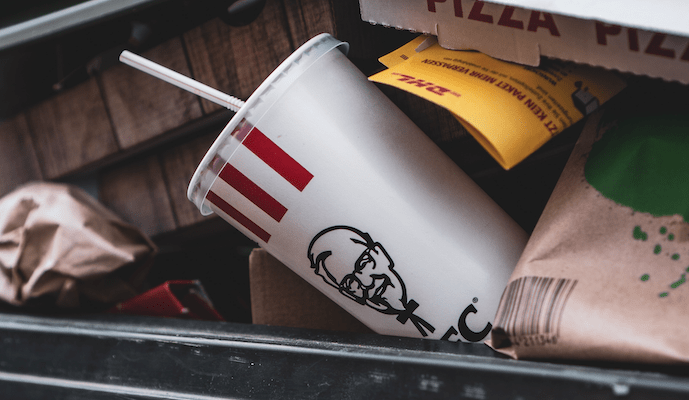Junk food adverts and the campaign against obesity
Debates around tackling obesity always involve the question of freedom. To what extent should individuals be free to eat as they wish without state interference? Some people would certainly support this argument and believe the government’s new strategy on obesity shouldn’t be pursued.
The new announcement from the Prime Minister, which is likely to include banning junk food adverts on TV before 9 pm, inevitably sees a greater role for the government in determining our nutritional diets. This is because, while obesity is not infectious, those who are overweight or obese are at greater risk of becoming seriously ill or dying from coronavirus. Boris Johnson’s own coronavirus experience is likely to have altered his instincts on state involvement.
Those who oppose state intervention in personal obesity are accepting intervention through the NHS. With The Guardian reporting that 63% of adults are above a healthy weight, the NHS is paying for the health consequences of obesity.
A clear focus of the government’s latest campaign has been on childhood obesity
Adverts, therefore, are part of a far wider strategy. Alone, they are trivial, as they will only be banned after 9 pm. Many children will watch adverts after that time. Similarly, many children don’t watch live TV and rely on streaming services. While banning online adverts has also been raised, practically enforcing this seems difficult, not least when the websites often aren’t based in the UK. Similarly, many people see adverts on buses or outside shops. Even if people were only swayed by advertising, which is highly questionable, focusing only on TV is outdated.
According to the BBC, a letter from the Institute of Practitioners in Advertising stated that a government impact assessment on banning adverts containing high fat, sugar and salt content after 9 pm would only remove an average of 1.7 calories per day from a child’s diet. This is the equivalent of half a Smartie so is clearly very minimal.
A clear focus of the government’s latest campaign has been on childhood obesity. Again, a debate arises over parental and state responsibility and where the balance should lie. There is a contradiction between children being malnourished while a third of children aged 10 or 11 are overweight or obese but if children are fed poorly, they won’t be in a fit state to learn. State involvement, to encourage worthwhile culinary foods, is therefore essential.
Banning food advertising only tries to reduce an individual’s impulsive temptation
The government should still enforce guidance for adults. With Politico reporting that “8% of critically ill patients in intensive care units with COVID-19 suffer from morbid obesity” compared to 3% of the general population, there is a clear impact of obesity on life chances.
Banning food advertising only tries to reduce an individual’s impulsive temptation. In some ways, it is quite patronising to suggest that individuals are only swayed by TV. Society must research why people consume poor quality food. Part of that must be due to insufficient education. At school, children should be taught about cooking different recipes. From the ages of five to 16, children should have cookery lessons with a range of food.
Children shouldn’t have to be reliant on their parent’s wealth and interests in cookery books. Instead, education should equip children with culinary skills to encourage healthy eating. Also, for lots of children, their diet depends on what their parents can afford which is something that must be tackled as the pandemic continues to have economic ramifications.
Obesity can only be tackled if we examine our working lives to provide more time for good quality food
This must continue in adult life by giving food greater value. Far too often, food is a secondary concern, simply consumed for necessity rather than something to enjoy. Food is seen as a disposable commodity rather than something to invest time in. Ironically, this comes as cookery programmes like Masterchef remain popular. Far too often, a long working day means a ready meal is an easy option for parents and their children. Perhaps obesity can only be tackled if we examine our working lives to provide more time for good quality food.
Advertising clearly plays an impact. Nobody calls for tobacco advertising to return. While some people demand an end to the smoking ban, their voices are unlikely to gain attention. Far more impactful on reducing smoking levels was a recognition of the wider health implications. An understanding of food is also needed beyond the TV screen.
Individuals have a responsibility to balance treats with healthy food. This is extremely important for parents raising children. Manufacturers have a duty to make their products healthier, either with incentives or government compulsion. Society has a duty to explore how we appreciate food but we also have a duty to support those who have difficult relationships with food or those who simply cannot afford to cook and eat healthily. The strategy for combating obesity can only start if food is viewed not simply to curb hunger, but as a tasty, enjoyment product in itself.

Comments